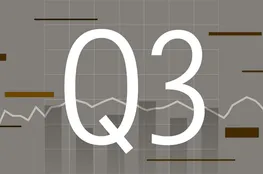Hearing the words "You have cancer" can trigger a cascade of emotions, from fear and disbelief to hope and determination. However, beyond the emotional impact, a cancer diagnosis also poses significant financial challenges for patients and their families. Two recent studies underscore the severe financial burden associated with cancer treatment, shedding light on issues such as ruined credit scores and an increased risk of bankruptcy. These studies represent a pivotal shift in understanding cancer's impact, offering numerical evidence of what researchers term 'financial toxicity' among cancer survivors.
Dr. Benjamin James, the leading author of these groundbreaking studies, highlights the dire financial implications that often accompany a cancer diagnosis. As the chief of general surgery at Beth Israel Deaconess Medical Center in Boston and an associate professor of surgery at Harvard Medical School, Dr. James emphasizes that the financial struggles are not merely another set of statistics but represent real hardships faced by individuals and families. The financial strain can arise from various sources, including high medical costs, loss of income, and the long-term nature of cancer care.
As patients navigate this complex journey, they must grapple with ongoing expenses such as medications, hospital visits, and specialized treatments. Insurance coverage, even when available, often falls short, leaving patients to shoulder significant out-of-pocket costs. Additionally, those unable to work during treatment may face lost wages, further exacerbating financial stress. The notion of financial toxicity adds a new dimension to the discussion of cancer care, urging healthcare providers to consider not only clinical outcomes but also the economic strain on patients.
Addressing these concerns requires collaborative efforts among medical professionals, policymakers, and support organizations to ensure that comprehensive support systems are in place. These might include financial counseling, assistance programs, and advocacy for more robust insurance coverage. Understanding and mitigating financial toxicity are essential components of holistic cancer care. By disseminating this knowledge and advocating for change, the medical community can better support patients through the multifaceted challenges of cancer diagnosis and treatment.
It is a call to action that underscores the need for compassion and practical solutions in the fight against cancer's pervasive impact.
























